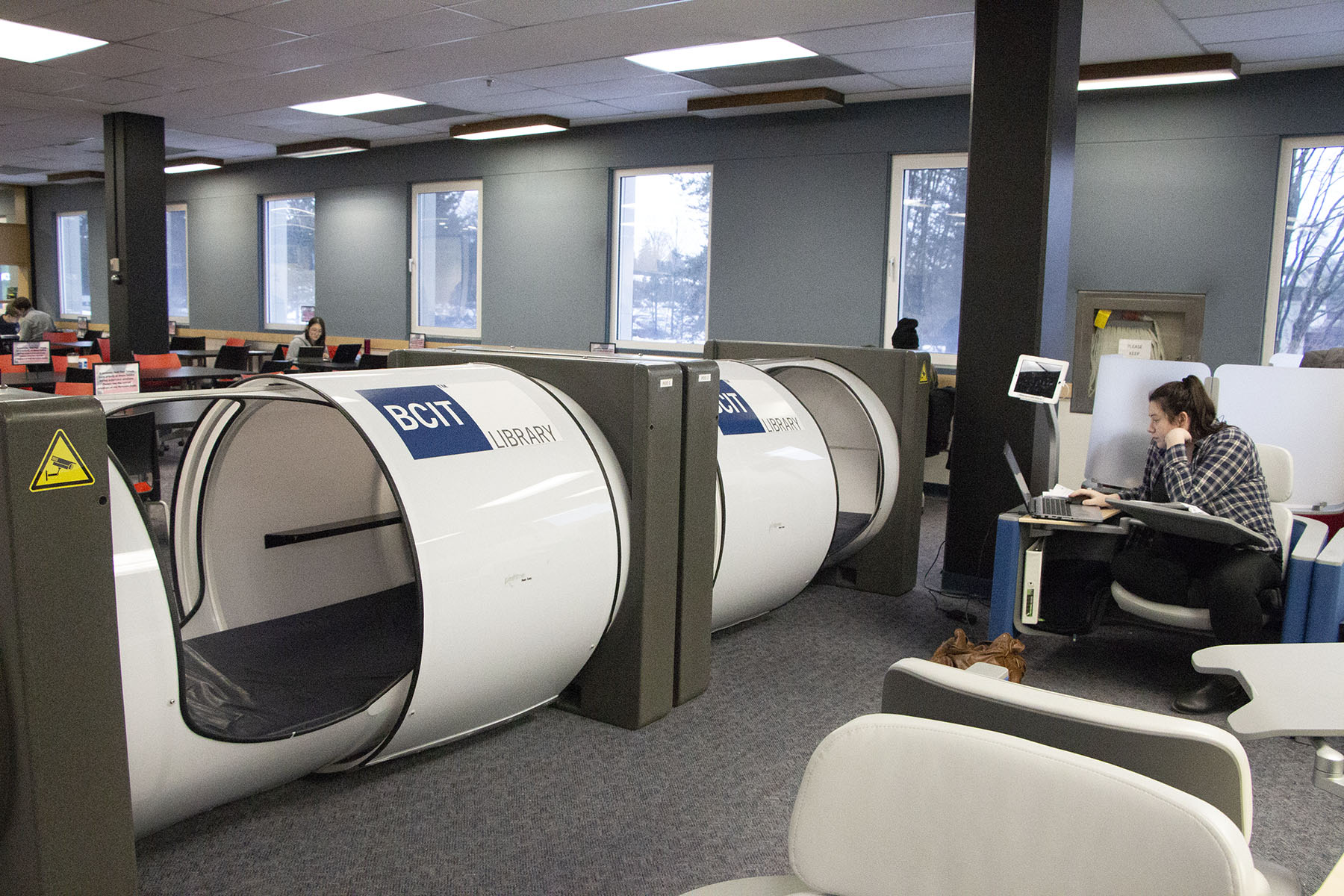Sleep pods on campus would provide space for exhausted students to recharge
Students are more likely to feel depressed if they're sleep deprived, says sleep patterns expert
Reported by Maxim Fossey
A designated place to snooze around campus could be what post-secondary students need as midterms approach and stress levels rise.
In 2016, Burnaby’s BCIT campus installed “sleeping pods” in their library for students to privately get some rest between classes and reduce stress.
Students are more likely to experience feelings of depression and irritability with sleep loss, said Ralph Mistlberger, who specializes in circadian rhythms and sleep patterns at SFU. He agrees with the use of sleeping pods on campus.
Students nap on chairs and couches
“I think it’s a fantastic idea. The best solution is to get more sleep at night. In reality, we can’t always,” Mistlberger said.
Mei Young, the post-secondary institutions operations manager at BCIT said students use sleeping pods more around exam periods, and have been successful so far.

In the Langara Students’ Union, students are often seen napping in the arm chairs and couches without more private options available on campus.
Taking a short nap is a possible solution to improve alertness during the day, Mistlberger said. “If circumstances are that you can’t get enough sleep at night, a nap is so much more powerful and restorative than having an extra cup of coffee.”
Langara student Scott Peroff said he tracks his sleep with his smartwatch and noticed a change during midterms.
“I’m definitely getting less sleep and my sleeps don’t feel as deep. And I wake up earlier in the morning because my biological clock seems to be more stressed out,” Peroff said.
He said he liked the idea of sleeping pods on campus. “If you put them somewhere like the LSU where students already go to sleep, at least you’d give them some privacy.”
Other resources more effective at reducing stress
Dan Pon, a librarian at Langara, said there are more students using the library during midterms. There is a higher demand for resources, and more urgent questions for librarians, but Pon doesn’t agree that sleep pods are the answer.
“I think personally, maybe better resources for group studies, or more tables or computers would probably get more use than the sleeping pods themselves,” he said.
Although Langara’s library may not have comfortable accessibility like BCIT, it offers additional services around a few weeks before finals called “De-Stress Fest,” Pon said. These services offer students video game nights, massage therapy, service dogs and sometimes have free coffee or snacks.
“Having that kind of supportive environment makes it easier for students that have to spend six or eight hours in the library studying for their midterms, so they have something that helps them relax and kind of supports their mental health and emotional health.”


Comments are closed.